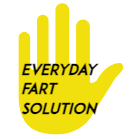How to decrease farting?
How to decrease farting? While it’s a natural bodily function, excessive flatulence can be embarrassing and uncomfortable.
Curious about ways to manage and reduce this common occurrence? Join us on a brief exploration as we unravel practical tips and lifestyle adjustments that contribute to a less gassy experience.
From dietary changes to mindful eating habits, understanding how to decrease farting involves a holistic approach to digestive health.
Let’s delve into the subtle yet essential adjustments that can make a significant difference, ensuring a more comfortable and socially graceful existence.
How to decrease farting? Let’s explore the science of a less gaseous lifestyle.
Understanding the Causes:
Excessive flatulence, though a natural bodily function, can lead to discomfort and social awkwardness.
It’s crucial to understand the causes behind excessive farting so let’s delve in.
1. Dietary Factors: Foods That Cause Excessive Farting
Experiencing excessive flatulence often links back to our dietary choices. Certain foods are notorious for causing increased gas production.
Here are some common culprits:
- Beans: Legumes, such as beans, lentils, and chickpeas, contain complex sugars that are challenging to digest, leading to gas production.
- Cruciferous Vegetables: Broccoli, cauliflower, cabbage, and Brussels sprouts contain fiber and raffinose, contributing to flatulence.
- Carbonated Drinks: Fizzy beverages introduce carbon dioxide into the digestive system, resulting in increased gas and bloating.
- Dairy Products: Lactose intolerance can cause gas, bloating, and flatulence after consuming milk, cheese, or other dairy products.
- High-Fiber Foods: While fiber is essential for digestive health, an excess can lead to increased gas. Whole grains, oats, and certain fruits fall into this category.
- Artificial Sweeteners: Some sugar substitutes, like sorbitol and mannitol, are known to cause gastrointestinal issues, including flatulence.
- Fatty Foods: High-fat foods take longer to digest, potentially causing fermentation and gas production in the intestines.
- Spicy Foods: Spices and hot peppers may irritate the digestive tract, leading to increased flatulence in some individuals.
Understanding and moderating the intake of these foods can be a key step in addressing and decreasing excessive flatulence.
2. Digestive System Issues:
Beyond dietary factors, issues within the digestive system can significantly contribute to excessive flatulence.
Let’s delve into some common digestive system issues associated with increased gas production:
Irritable Bowel Syndrome (IBS):
IBS is a common gastrointestinal disorder characterized by abdominal pain, bloating, and changes in bowel habits. It often leads to increased flatulence.
Inflammatory Bowel Disease (IBD):
Conditions like Crohn’s disease and ulcerative colitis fall under IBD, causing inflammation in the digestive tract and contributing to excessive gas.
Gastroenteritis:
Inflammation of the stomach and intestines due to infection can disturb normal digestion, resulting in increased flatulence.
read: How to cover up a fart in class?
How to decrease farting?
Now that we’ve gained insights into some of the causes behind excessive flatulence, let’s explore ten effective strategies to reduce and manage it.
From dietary adjustments to lifestyle changes, these practical approaches will empower you to take control of excessive farting and promote a more comfortable digestive experience.
1. Eating habits:
To curb excessive flatulence, consider mindful eating habits. Opt for smaller, more frequent meals to aid digestion and reduce the likelihood of gas buildup.
Slow down while eating, giving your digestive system ample time to process food. Identify and limit consumption of gas-inducing foods like beans and cruciferous vegetables.
Additionally, stay hydrated to promote smooth digestion. These simple adjustments in your eating habits can play a pivotal role in decreasing farting and promoting digestive comfort.
2. Gum
Chewing gum might seem harmless, but it can contribute to increased flatulence. When you chew gum, you unknowingly swallow air, leading to bloating and gas.
Moreover, many gums contain artificial sweeteners like sorbitol, known to cause digestive issues. The constant chewing also signals your stomach to produce more digestive juices, potentially disrupting the digestive process and causing flatulence.
Consider minimizing gum chewing or opting for sugar-free options to decrease the likelihood of excess gas in your digestive system.
3. Gas-producing foods
Certain foods are notorious for causing excessive gas production, contributing to flatulence. Beans and legumes contain complex sugars that ferment in the intestines, producing gas.
Cruciferous vegetables like broccoli and cabbage contain fiber and raffinose, also known to increase gas. Carbonated drinks introduce carbon dioxide into the digestive system, causing bloating and flatulence.
Dairy products, high-fiber foods, and artificial sweeteners can also contribute to excess gas. Identifying and moderating the intake of these gas-producing foods is crucial in decreasing flatulence and promoting digestive comfort.
read: How to eat beans without farting?
4. Elimination diet
Embarking on an elimination diet can be a strategic approach to identifying and managing foods triggering excessive flatulence.
This method involves systematically removing potential culprits, such as dairy, gluten, or specific vegetables, from your diet for a designated period.
Gradually reintroduce eliminated foods to observe their impact on digestive health.
By pinpointing and eliminating triggers, individuals can tailor their diets to minimize flatulence, making the elimination diet a valuable tool in understanding and addressing the root causes of excessive gas.
5. Carbonated drinks
Indulging in carbonated drinks can significantly contribute to excessive flatulence.
These fizzy beverages contain dissolved carbon dioxide, and when consumed, the gas gets trapped in the digestive system. This leads to bloating, belching, and increased flatulence.
The carbonation process introduces extra air into the stomach, and the carbon dioxide can irritate the gastrointestinal tract, prompting the release of gas.
To decrease flatulence, consider reducing the intake of carbonated drinks and opting for non-carbonated alternatives to alleviate gas-related discomfort.
6. Supplements
While supplements can be beneficial for overall health, certain ones may contribute to increased flatulence.
For instance, some fiber supplements, although aiding digestion, can lead to gas production. Additionally, certain vitamins and minerals, when taken in excess, might cause gastrointestinal discomfort.
It’s crucial to follow recommended dosages and consult with a healthcare professional before incorporating supplements.
Choosing easily digestible formulations and taking supplements with meals can help minimize the risk of excessive flatulence while ensuring the body receives essential nutrients.
7. Probiotics
Introducing probiotics into your diet can positively impact gut health and reduce flatulence.
Probiotics are beneficial bacteria that aid digestion, promoting a balanced microbial environment in the intestines.
Incorporate probiotic-rich foods like yogurt, kefir, and sauerkraut into your diet or consider supplements to support a healthy digestive system and decrease flatulence.
8. Smoking
Smoking is linked to increased flatulence. When individuals smoke, they inhale air, and some of it gets trapped in the digestive system, leading to bloating and gas.
Quitting smoking not only improves overall health but can also reduce excess flatulence.
9. Constipation
Constipation can contribute to flatulence as stool builds up in the colon, fermenting and producing gas.
To alleviate constipation-related flatulence, increase fiber intake, stay hydrated, and engage in regular physical activity to promote healthy bowel movements.
10. Physical activity
Regular physical activity is essential for maintaining a healthy digestive system and can aid in decreasing flatulence.
Exercise helps stimulate bowel movements and prevents constipation, reducing the likelihood of excessive gas.
Incorporate activities like walking, jogging, or yoga into your routine to promote digestive health and minimize flatulence.
read: How to fart at work?



